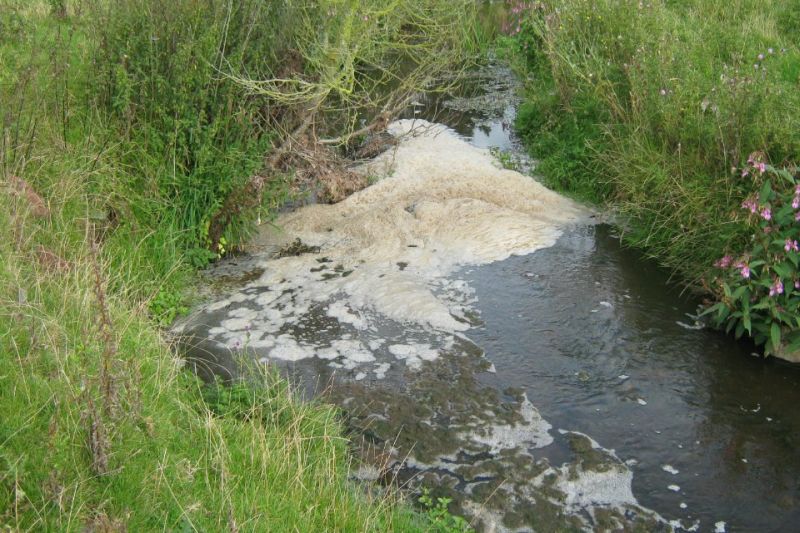
Farmers are being warned about the risks of farm pollution after official figures revealed 430 incidents occurred across England in the past decade.
The Environmental Agency statistics were obtained through a Freedom of Information (FoI) request.
Agriculture remains one of the biggest sources of pollution incidents, with the Environment Agency branding it 'a slow-motion environmental catastrophe'.
Farm pollution incidents can have a devastating impact on wildlife, ecosystems and, in some cases, human health.
Silage effluent, for example, can be up to 200 times more toxic than untreated sewage if it finds its way into waterways.
Latest sentencing guidelines mean farmers could be slapped with unlimited fines, or up to five years in prison, if found responsible for a pollution breach.
Richard Beechener, On Farm Account Executive for Farmers & Mercantile Insurance Brokers, said he is concerned many farmers are unaware of how destructive farm pollution can be to the environment – or the severe penalties they face if prosecuted.
“The Environment Agency is pushing for farmers who damage the environment to lose their government grants, and you have a situation which many farmers simply could not recover from,” he said.
“In summary, farmers’ businesses are being put in serious jeopardy because of carelessness. This is not a risk any farmer should be willing to take.”
Mr Beechener said risk assessments should be conducted, such as identifying low-lying areas and waterways vulnerable to effluent runoff, and checks should be routinely carried out, from ensuring silage clamps and slurry containers are sound and secure to examining nearby waterways for signs of pollution.
“Adverse weather should be also taken into account, as heavy rainfall can increase the chance of toxic runoff. Contingency plans should put in place, in preparation for every eventuality, and all workers should be made aware of these,” he said.
